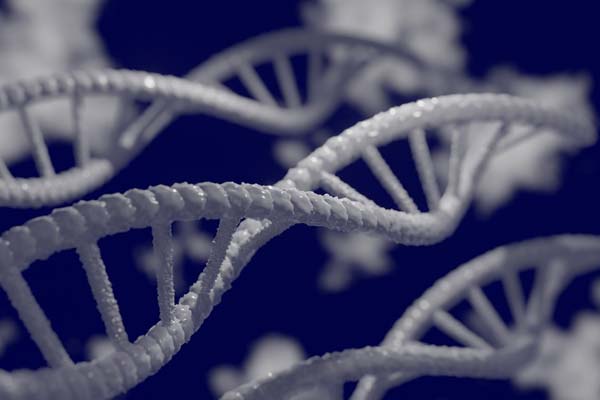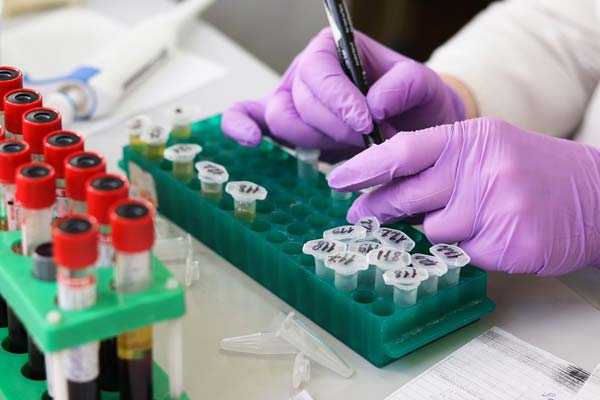Is IB Biology Hard? What You Need to Know Before You Dive In!
IB Biology is widely considered one of the most challenging classes in the International Baccalaureate program. The course demands a lot of hard work, dedication, and perseverance from students to succeed.
This challenging class requires students to face many hardships, including a heavy workload, time management, rote learning, and critical thinking.
One of the primary reasons that makes IB Biology harder than other IB sciences is that it is based on pure memorization. Students are required to memorize a vast amount of information, including long essays and scientific terminologies.
However, it is essential to note that memorizing information is not the only requirement to excel in IB Biology. Students must also be able to apply their knowledge to real-life situations and demonstrate critical thinking skills.
The workload in IB Biology is also quite heavy. Students must complete several assignments, essays, and lab reports throughout the course.
The IB Biology course demands students’ time and effort, which may pose difficulties when juggling other classes and extracurricular commitments.
However, it is an application-oriented program assessing students’ capacity to apply their knowledge in real-world scenarios.
This evaluation approach necessitates critical and creative thinking, offering challenges and substantial rewards.
IB Biology Course Structure
IB Biology, a challenging program, explores the study of living organisms and their interactions with the environment. It offers students a thorough grasp of the subject, with two levels to choose from: Standard Level (SL) and Higher Level (HL).
SL vs HL
SL and HL are two different levels of the IB Biology course. SL is designed for students who want to gain a basic understanding of biology, while HL is for students who wish to delve deeper into the subject matter.
The IB program requires students to take a minimum of four subjects at HL, and biology can be one of them.
🌟 Hey Students! 🚀 Ready for the ultimate experience? Join us on Studentsinside.com's Facebook, YouTube, WhatsApp, and LinkedIn. Click now for tips, fun, and success vibes! 🌈✨ #StudentLife #JoinUs
The IB Biology course comprises six topics that SL and HL students study. However, HL students delve into additional, more advanced topics, demanding a deeper comprehension of the subject matter.
The other topics covered by HL students include:
- Neurobiology and Behaviour
- Biotechnology and Bioinformatics
- Ecology and Conservation
HL students also cover some topics more in-depth than SL students and must complete additional assessments, such as a research project.
In addition to the six topics, students must complete practical laboratory work, an essential course component.
The practical work is designed to help students develop their experimental skills and provide them with hands-on experience conducting scientific research.
Topics Covered in IB Biology
IB Biology covers various topics and concepts essential for understanding biology’s fundamental principles.
Cell Theory and Genetics
Cell Theory, a fundamental biological concept, posits that all living organisms consist of cells, which are the fundamental units of life.
In IB Biology, students learn about the structure and function of cells, including the differences between prokaryotic and eukaryotic cells, the role of organelles in cell function, and the process of cell division.
Genetics is another important topic covered in IB Biology. Students learn about the basic principles of genetics, including the structure and function of DNA, the process of DNA replication, and the mechanisms of inheritance.
They also explore genetic variation’s role in evolution and genetic disorders’ impact on human health.
Structure and Function
In IB Biology, the “Structure and Function” topic delves into the composition and roles of biological molecules, encompassing carbohydrates, lipids, proteins, and nucleic acids.
Students learn about the chemical properties of these molecules, their roles in cellular function, and the mechanisms of enzyme catalysis.
IB Biology also covers the structure and function of different organisms, including plants, animals, and microorganisms.
Students learn about the various organ systems in these organisms, their roles in maintaining homeostasis, and the mechanisms of physiological processes such as respiration, photosynthesis, and digestion.
Comparing IB Biology with Other Subjects
IB Biology vs. Physics
IB Biology and IB Physics are rigorous subjects offered by the International Baccalaureate (IB) program. While both subjects require strong analytical and critical thinking skills, IB Biology is more content-heavy than IB Physics.
IB Physics emphasizes mathematical problem-solving skills, whereas IB Biology focuses more on memorizing and understanding biological concepts.
IB Physics also covers a wider range of topics, including mechanics, electricity, and thermodynamics, while IB Biology primarily covers cellular biology, genetics, and ecology.
IB Biology vs. Chemistry
IB Biology and IB Chemistry are both challenging subjects offered by the IB program. While both subjects require strong analytical and critical thinking skills, IB Biology is more content-heavy than IB Chemistry.
IB Chemistry emphasizes mathematical problem-solving skills, whereas IB Biology focuses more on memorizing and understanding biological concepts.
IB Chemistry also covers a wider range of topics, including organic chemistry and thermodynamics, while IB Biology primarily covers cellular biology, genetics, and ecology.
IB Biology vs. AP Classes
IB Biology is often compared to Advanced Placement (AP) Biology, a popular science course in the United States. While both courses cover similar topics, there are some critical differences between the two.
IB Biology is considered to be more rigorous than AP Biology, with a greater emphasis on critical thinking, research, and independent study. IB Biology requires students to complete a research project, whereas AP Biology does not.
Assessment and Grading in IB Biology
Assessment and grading in IB Biology are based on internal and external assessments. Internal assessments are conducted by the teacher and externally assessed by the IB, while external assessments are taught and assessed by the IB.
Paper 1 and Paper 2
Papers 1 and 2 are externally assessed and comprise 70% of the final grade. Paper 1 is a multiple-choice test consisting of 45 questions, and Paper 2 is a structured essay test consisting of short-answer and extended-response questions.
The average score for Paper 1 and Paper 2 is around 20-25 out of 45 and 40-45 out of 80, respectively. To prepare for these exams, students should practice with past papers, including timed past papers, and familiarize themselves with the mark scheme.
Extended Essay
The Extended Essay constitutes 20% of the final grade and involves independent research.
It undergoes internal assessment by the teacher and external moderation by the IB. This essay should span 4,000 words and fully grasp a biological subject.
IB Biology grades range from 1 to 7, with seven being the highest. To attain a perfect IB score of 45, a student must earn a 7 in all six subjects, including IB Biology.
Study Techniques for IB Biology
Various techniques can help students learn and recall the material when studying for IB Biology. Some popular methods include flashcards, mind maps, and online resources.
Flashcards and Mind Maps
Flashcards are a great way to memorize information for IB Biology. Students can create flashcards for key terms, definitions, and processes.
They can also use flashcards to quiz themselves on different topics. Mind maps are another helpful tool for visual learners. Mind maps help students organize information and make connections between other concepts.
Online Resources
Numerous online resources cater to IB Biology students. Bioninja is a popular website offering comprehensive notes, diagrams, and practice questions. YouTube also serves as a valuable platform for accessing concept-explaining videos.
For specific topic challenges, Khan Academy proves to be an excellent aid. Moreover, students can benefit from online flashcards and quizzes to gauge their knowledge and retention.
Students may consider creating recall spreadsheets to enhance their study approach, especially for content demanding extensive memorization. Additionally, they can utilize class notes to craft diagrams and visual aids for better comprehension.
Career Prospects with IB Biology
IB Biology is a challenging course requiring much hard work and dedication. However, it can also open up many career opportunities for those who excel in the subject.
Here are some potential career paths for students who study IB Biology:
Medicine
IB Biology is an excellent foundation for students interested in pursuing a career in medicine. The course covers many topics relevant to the medical field, such as genetics, physiology, and anatomy.
Students who study IB Biology will have a strong understanding of how the human body works, which can be helpful when studying medicine.
Moreover, IB Biology equips students with vital skills crucial for success in medical school, including critical thinking, data analysis, and effective communication of findings.
Application
IB Biology is a strong foundation for those aspiring to enter biotechnology or pharmaceutical careers. It encompasses pertinent subjects like genetic engineering, biotechnology, and pharmacology, providing students valuable insights into these domains.
By studying IB Biology, students gain a profound understanding of the inner workings of these fields, which can prove advantageous in their career pursuits.
Furthermore, the course nurtures critical thinking, data analysis, and effective communication skills, indispensable for success in biotechnology and pharmaceuticals.








